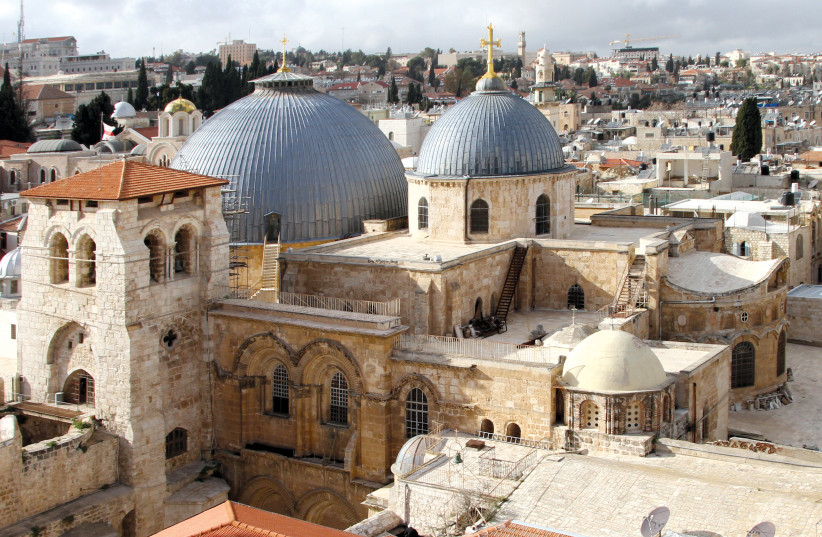The heads of various Christian churches in Jerusalem united in opposition to the Jerusalem Municipality's decision to impose municipal taxes (Arnona) on church properties. In a joint statement released on behalf of the Patriarchs and Heads of Churches on Sunday, the leaders expressed deep concern over the municipality's move, which they argued contradicted centuries of historical agreements between the churches and civil authorities.
"We declare that such a measure both undermines the sacred character of Jerusalem and jeopardizes the Church’s ability to conduct its ministry in this land on behalf of its communities and the worldwide church," stated the collective heads of churches.
The statement emphasized the significant contributions of Christian churches to Jerusalem, including investments in schools, hospitals, homes for the elderly, and facilities for the disadvantaged. It asserted that civil authorities have historically recognized and respected these contributions.
Status quo
The heads of churches called upon the Jerusalem Municipality to retract its decision and uphold the historically sanctioned status quo. They emphasized the importance of maintaining Jerusalem's sacred character and protecting the churches' ability to fulfill their ministries.
The Patriarchs and Heads of Churches who signed the statement included:
- Patriarch Theophilos III, Greek Orthodox Patriarchate
- Patriarch Nourhan Manougian, Armenian Apostolic Orthodox Patriarchate
- Archbishop Pierbattista Pizzaballa, Apostolic Administrator, Latin Patriarchate
- Fr. Francesco Patton, ofm, Custos of the Holy Land
- Archbishop Anba Antonious, Coptic Orthodox Patriarchate, Jerusalem
- Archbishop Swerios Malki Murad, Syrian Orthodox Patriarchate
- Archbishop Aba Embakob, Ethiopian Orthodox Patriarchate
- Archbishop Joseph-Jules Zerey, Greek-Melkite-Catholic Patriarchate
- Archbishop Mosa El-Hage, Maronite Patriarchal Exarchate
- Archbishop Suheil Dawani, Episcopal Church of Jerusalem and the Middle East
- Bishop Ibrahim Sani Azar, Evangelical Lutheran Church in Jordan and the Holy Land
- Bishop Pierre Malki, Syrian Catholic Patriarchal Exarchate
- Msgr. Georges Dankaye’, Armenian Catholic Patriarchal Exarchate

The churches' collective opposition to the municipal tax underscored their commitment to preserving Jerusalem's religious and social fabric, reflecting concerns shared by the Christian community in the Holy City.
Background behind the dispute
The conflict over municipal taxes on church properties in Jerusalem had been ongoing for several years. In 2018, the Jerusalem Municipality announced plans to collect NIS 650 million in taxes from properties owned by churches that are not used as houses of worship. This decision led to significant backlash from church leaders, who viewed the move as violating longstanding agreements and international obligations guaranteeing their rights and privileges.
The situation escalated when church leaders closed the Church of the Holy Sepulchre in protest, a rare and dramatic step highlighting the severity of their opposition. During a peak time for Christian tourism, the closure underscored the potential economic and diplomatic repercussions of the municipality's decision.
In response to the outcry, Prime Minister Benjamin Netanyahu intervened, halting the tax collection efforts and forming a commission led by Regional Cooperation Minister Tzachi Hanegbi to find a resolution. This intervention aimed at preserving the status quo and preventing further damage to Israel's relations with the global Christian community.
